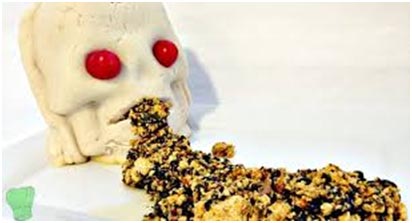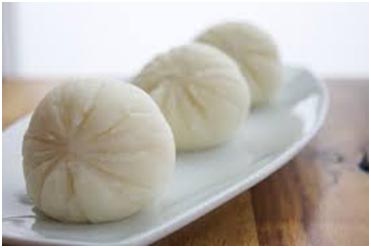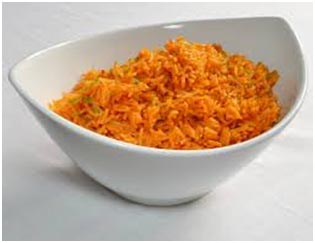Is Nigerian Food Killing You? Part 1/2
Let me state right away that I love our traditional Nigerian food. I grew up on Garri, Egusi Soup and Stew. At night I dream of Akara. This being said, I’ve become more and more health conscious over the years, and when I witness the way that most of our food is cooked, I can’t help but cringe.
Now, before I have an indignant mob coming after me, please allow me to explain further. Many of us forsake health for flavor, and it’s for this reason that the Nigerian obesity rate is consistently climbing. Combine this with the traditional desire of our older generations to be fat, thick, meaty, or whatever you want to call it, and you see a recipe for disaster.
I will now take the time to explain why the everyday dietary practices amongst many of us are not only faulty, but dangerous. Part of our issue stems from tradition, while some of it simply stems from lack of awareness. Dietary health is not something that Nigerians have really considered until recently, and I am proud to see the tide slowly turning, particularly amongst the younger generations.
Here are the dishes and practices that you should limit/avoid, and why.
Excess Palm/Vegetable Oil:
The next time you eat your Egusi Soup, pay attention to how much oil is being poured in. This sneaky ingredient is prevalent in our diets, as we have grown increasingly addicted to the salty, moist, addition it makes to our food. Many think of “vegetable oil” as healthy… maybe because it has the word “vegetable” in it. Consequently they feel like it’s ok to pour it in nearly all of our dishes. But the truth is quite the opposite.

CERTAIN oils are quite good for you- for example Olive oil. However, the oils that we Nigerians use in our cooking, like Palm oil, Canola oil, Coconut oil and Vegetable oil are NOT, especially in the excessive manner in which we use them. Oils like Palm oil contain huge amounts of “trans fat” and “saturated fat”, which are highly toxic and are associated with an increased risk of various diseases, like heart disease, cancer, diabetes and obesity. In addition, they often add unnecessary calories to a meal that is likely already to exceed your daily caloric requirements.
By reducing the amount of oil that you eat every day, you will feel a huge difference, and your body will thank you years down the line. Soups and stews taste even better when you can eat them guilt-free.
Fun fact: One serving of Egusi Soup with a few chunks of stockfish or a few pieces of meat contains about 700 calories. Keep in mind that one serving is a small bowl about the size of your palm. You can thank oil for the high calorie content, as well as the fact that Egusi soup is about 60% fat. Tack on the pounded yam and this meal can easily count for almost your entirely caloric requirements for the day.
Lesson: Reduce your likelihood of heart disease and excess belly fat by cutting down on the amount of oil you use in your cooking. When possible, use alternatives like Olive Oil, which contain healthier kinds of fat for your body.
Pounded Yam:
Also known as Fufu, Pounded Yam contains 400 calories per cup. For reference, this portion size is no bigger than your tightly clenched fist. This being said, I know many people who could easily eat two or three portions in a sitting. And you know what? The worst part is that Yam is never eaten alone. For those of you who may not know what it is, it is a thick white doughy substance that you use to dip in soups or stews. Though delicious, I like to consider it a fork with calories.

This being said, I unfortunately need to tell you that yams in general do have some nutritional value. The tuber itself is full of nutrients and anti-oxidants like vitamin C and Potassium. Potassium helped to control heart rate and blood pressure by countering hypertensive effects in sodium. Plus, pounded yam does not often have oil added directly to it, so by itself it’s a relatively innocent snack. However, when eaten in large portion sizes, the costs of eating this treat far outweigh the benefits. Plus, several critics of pounded yam argue that the water boils out many of the nutrients anyway. As long as the jury is out on this matter, all I can advise is to watch your portions, and be careful what you’re eating it with.
Lesson:
All things in moderation. Yams are a sneaky vehicle for calories and overeating. Utilize appropriate serving sizes.
Rice:
There are some essential things that we need to talk about when it comes to rice. First of all, this is not one of the foods I am advising you to eliminate from your diet. I realize that rice is an integral staple in the Nigerian diet, and I don’t see that changing any time soon. This being said, it’s always important to be aware of exactly what you are putting into your body.

One cup of white, steamed rice, without butter or any additions, contains 200 calories. By itself, one may look at this and consider rice a good option as a daily staple. For us ladies, however, consider as well the fact that rice is primarily composed of carbs. If you are looking to slim down or whittle your waistline, carbs are one of the first things you should cut out. For those of you who don’t care about weight loss specifically, keep reading- there’s more.
Not all rice is created equal. Brown rice is the healthy alternative to it’s popular but not-so-healthy cousin, white rice. Brown rice contains a fair amount of fiber (1.8%) while white rice is very low in fiber (0.3%).
Most of the nutrient value from rice is contained in the bran and the germ, which are components of brown rice, but both of which are removed from white rice. From brown rice, you can expect to receive a dose of manganese, selenium, thiamin, niacin, magnesium and more… from white rice you can expect extremely little of these valuable vitamins.
Jollof Rice is undoubtedly the most beloved of all Nigerian dishes. However keep in mind that it’s base is often white rice, masked with red coloring and splashed with a helping of oil... not your best choice of food!
Lesson: Brown rice has some nutritional value for you, while white rice doesn’t provide you with much more than calories.
To Be Continued... (See "Is Nigerian Food Killing You? Part 2/2" in our Nutrition section)
By Destiny Kanu

